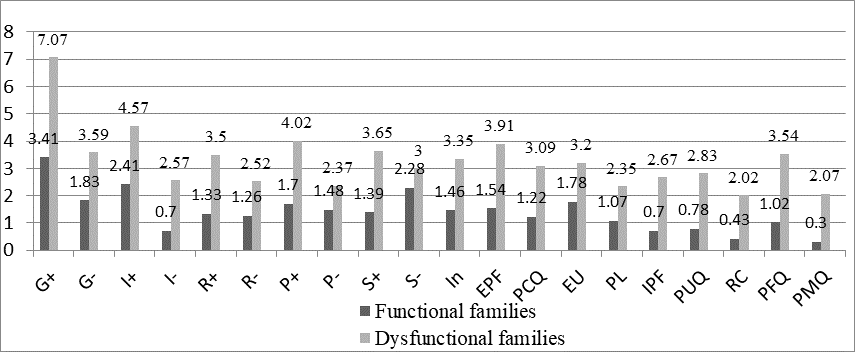Psychological Trauma Of Children Of Dysfunctional Families
Figure 1: Intensity indicators in the questionnaire of the AFR in functional and dysfunctional families. Note: G+ – hyperprotection; G- – hypoprotection; I+ – indulgence, I- – ignoring the needs; the R+ – excessiveness of requirements – responsibilities; R- – deficit of requirements-responsibilities; P+ – excessive requirements-prohibitions; P- – deficit of requirements-prohibitions; S+– excessiveness of the sanctions; S- – minimal sanctions; In — instability of parenting style; EPF – expansion of parental feelings; PCQ – preference of child qualities; EU – educative uncertainty of parents; PL – phobia of losing a child; IPF — immaturity of parental feelings; PUQ – projection of parent’s own unwanted qualities on the child; RC – bringing spouse conflict to child education PFQ – preference of female qualities; PMQ – preference of male qualities.
< Back to article

